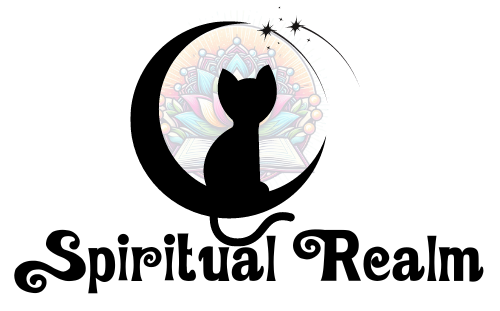Spiritual Meaning of UTI: Discover Hidden Insights for Healing
Have you ever considered how your body might be communicating with you? Sometimes, physical discomfort can carry a deeper message than we realize. Let’s explore the unexpected connection between our health and our spiritual well-being.
The spiritual meaning of a UTI often symbolizes unresolved emotions or stress. It encourages us to pay attention to boundaries and self-care, highlighting areas in life needing healing.
Curious about how this condition relates to your inner journey? Understanding these connections could lead to powerful insights that enhance both your physical and emotional health. Stay tuned for more enlightening perspectives!
Emotional Connections and the Spiritual Journey of UTI
The emotional connections tied to a urinary tract infection (UTI) often reveal underlying issues that need attention. Physical symptoms can reflect our emotional state, indicating stress or unresolved feelings. This condition can serve as a reminder to focus on self-care and personal boundaries.
A UTI may symbolize feelings of vulnerability or discomfort with expressing needs. Individuals experiencing this condition might find it beneficial to evaluate their emotional landscape, pinpointing sources of anxiety or tension in their lives.
The Emotional Landscape Behind UTIs
Research suggests that chronic ailments like UTIs can be influenced by mental health factors. Stress and anxiety are known contributors to physical health problems, including recurrent infections. Recognizing these patterns is crucial for holistic healing.
“Physical symptoms often mirror our inner turmoil; addressing both aspects is essential for true wellness.”
When experiencing a UTI, consider the following emotional connections:
- Stress Management: High levels of stress can weaken the immune system.
- Boundaries: Difficulty asserting oneself may lead to feelings of overwhelm.
- Sensitivity: A heightened sense of vulnerability could manifest physically through pain or discomfort.
Nurturing Your Spirit During Recovery
Caring for your spiritual well-being during recovery from a UTI involves more than just physical treatment. Engaging in practices that promote relaxation and mindfulness can significantly aid healing. Techniques such as meditation, yoga, or journaling provide outlets for processing emotions.
Taking time to nurture yourself fosters resilience against future infections. Incorporating herbal remedies known for their soothing properties may also support both physical and emotional balance during this journey towards recovery.
“Self-care is not selfish; it’s essential for maintaining one’s health.”
Cultivating awareness around your body’s signals leads to deeper insights into your overall health. By recognizing how emotions impact physical conditions like UTIs, you empower yourself on both an emotional and spiritual level—an integral part of holistic care.
Common Beliefs Surrounding UTI and Its Spiritual Significance
The connection between urinary tract infections (UTIs) and spiritual well-being is an area of interest for many. Common beliefs suggest that UTIs can signify underlying emotional conflicts or stressors in our lives. Many people think that these physical ailments serve as a reminder to reassess personal boundaries and prioritize self-care.
These beliefs stem from the idea that physical health often reflects our emotional state. When facing unresolved issues, the body might manifest discomfort as a way of signaling distress. Recognizing this link can be empowering, allowing individuals to address not only their physical symptoms but also their emotional needs.
Physical Indicators of Emotional Strain
A UTI may occur during times of heightened stress or anxiety. The body’s response to emotional turmoil can lead to weakened immune function, making one more susceptible to infections.
- Stress: Chronic stress can disrupt bodily functions, leading to inflammation and other issues.
- Bottled Emotions: Unexpressed feelings may manifest physically, indicating areas needing attention.
- Lack of Boundaries: Difficulty saying no or asserting oneself can contribute to feelings of overwhelm.
Cultural Perspectives on Health and Wellness
Diverse cultures recognize the intricate relationship between mental health and physical conditions. Many traditional healing practices emphasize holistic approaches that consider both mind and body in treatment plans.
If we ignore the messages from our bodies, we risk prolonged suffering without understanding its root cause.
Navigating Your Inner Journey Through Symptoms
Tuning into your body’s signals plays a crucial role in achieving balance. By acknowledging the spiritual significance behind recurrent UTIs, you open pathways for healing beyond conventional medicine.
Paying attention to recurring patterns in your life helps illuminate potential triggers for discomfort. This awareness encourages proactive steps toward both mental clarity and improved physical health.
| Spiritual Insight | Description |
|---|---|
| Bodily Awareness | Your body’s reactions are invitations to reflect on your emotional landscape. |
| Sacred Self-Care | Nurturing yourself becomes essential when faced with discomfort; it promotes healing on multiple levels. |
The journey toward better health encompasses both physiological care and addressing emotional wellness. Acknowledging these common beliefs regarding UTIs offers valuable insights into enhancing overall well-being while fostering resilience against future ailments.
Healing Practices to Address UTI from a Spiritual Perspective
Addressing a urinary tract infection (UTI) through spiritual practices can significantly enhance your healing journey. These methods focus on the emotional and energetic aspects of your body, helping to release blockages that may contribute to physical discomfort. By nurturing your spirit, you cultivate a deeper understanding of the underlying issues linked to this condition.
Integrating spiritual healing into your recovery process not only alleviates symptoms but also promotes holistic wellness. Here are several effective practices that align with this approach.
Meditation for Clarity
Engaging in meditation allows for introspection and emotional release. This practice encourages you to reflect on any unresolved feelings or stressors affecting your well-being.
“Meditation helps quiet the mind, enabling better communication with one’s inner self.”
A few minutes each day can foster tranquility and aid in recognizing boundaries that need attention. Consider guided meditations focused on healing or visualizing vibrant energy flowing through the affected areas.
Energy Healing Techniques
Practices such as Reiki or chakra balancing can help restore harmony within your body. Energy healers facilitate the flow of positive energy while clearing stagnant energies associated with discomfort.
- Reiki: A gentle hands-on technique promoting relaxation and pain relief.
- Craniosacral Therapy: Focuses on releasing tension around the spine and cranial area.
- Aromatherapy: Essential oils like tea tree and lavender can support emotional balance while providing antimicrobial benefits when used correctly.
Nourishing Your Body Through Diet
The foods you consume play an essential role in both physical health and spiritual well-being. Incorporate organic fruits, vegetables, and whole grains into your diet to promote overall vitality.
“A balanced diet nourishes both body and soul, supporting comprehensive healing.”
Certain herbs are particularly beneficial for urinary health; consider integrating cranberry juice or dandelion root tea into your routine as natural remedies alongside their spiritual significance—symbolizing purification and detoxification respectively.
Tapping Into Nature’s Energy
Nature has a profound capacity to rejuvenate our spirits. Spending time outdoors allows you to ground yourself energetically while enhancing clarity about personal needs.
Connecting with nature can be as simple as walking barefoot on grass or practicing mindfulness under trees, absorbing their wisdom for resilience against life’s challenges.
Cultivating Self-Compassion
Soulful journaling is an effective way to express emotions often neglected during busy lives. Writing down thoughts fosters self-awareness while encouraging compassion towards oneself.
This act nurtures emotional healing by allowing space for reflection on experiences related to stressors manifesting physically as UTIs.
Transformative Lessons Learned Through Experiencing UTI
Experiencing a urinary tract infection (UTI) can be both physically uncomfortable and emotionally challenging. However, it often brings to light valuable lessons about self-care and emotional health. The journey through this condition can reveal deeper insights into our well-being and relationships.
When faced with a UTI, many individuals report a heightened awareness of their bodily needs. This experience encourages prioritizing personal boundaries and recognizing the importance of listening to one’s body.
The Importance of Self-Care
A UTI serves as a reminder that neglecting self-care can lead to physical ailments. Taking time for oneself is essential in today’s fast-paced world.
- Hydration: Drinking plenty of water helps flush out bacteria from the urinary tract.
- Nutrition: A balanced diet supports overall health and strengthens the immune system.
- Mental Health: Stress management techniques like meditation or yoga can improve resilience against infections.
“Taking care of your body is an act of self-love.” – Unknown
Paying Attention to Emotional Signals
The onset of a UTI might also correlate with unresolved emotions or stressors in life. Individuals may find themselves reflecting on situations where they feel overwhelmed or unappreciated.
This introspection fosters personal growth; acknowledging these feelings allows for healing and setting healthier boundaries moving forward.
The Role of Boundaries
A frequent lesson learned during recovery from a UTI involves understanding personal limits. When we respect our own boundaries, we cultivate stronger relationships while maintaining our mental health.
| Boundary Type | Description |
|---|---|
| Physical Boundaries | Your comfort level regarding touch and personal space. |
| Emotional Boundaries | Your ability to express your feelings without fear of judgment. |
| Mental Boundaries | Your right to control your thoughts and beliefs without external pressure. |
Nurturing oneself by respecting these boundaries not only aids recovery but also creates lasting change in how we interact with others. Ultimately, experiencing a UTI might seem like an unfortunate event; however, the transformative lessons gained are invaluable assets on one’s journey toward wellness!
FAQs
What emotional issues can a UTI reveal?
A UTI may highlight unresolved emotions like stress or anxiety. It often indicates the need to address personal boundaries and prioritize self-care, encouraging deeper emotional introspection for holistic healing.
How does stress impact urinary health?
Chronic stress can weaken the immune system, making individuals more susceptible to infections like UTIs. Recognizing this connection is essential for addressing both physical symptoms and underlying emotional distress.
What practices support spiritual recovery from a UTI?
Meditation, energy healing, and journaling are effective practices that promote spiritual recovery from a UTI. These methods help release emotional blockages while fostering mindfulness and self-compassion during healing.






